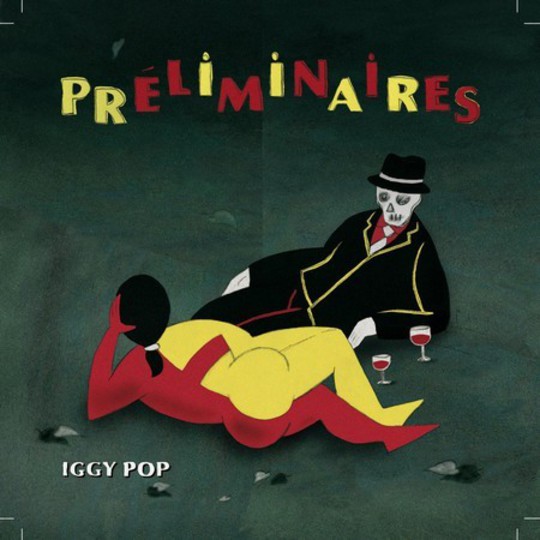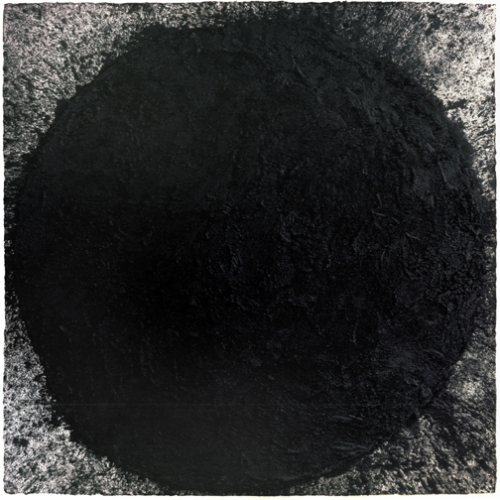Peanut butter-covered proto-punk, actor, drug-addled mental patient, rock’n’roll survivor, insurance salesman: Iggy Pop has been a lot of things. Never before, however, has he presented himself as a smooth French jazz singer, but, to some extent, that’s what he does on latest LP, Préliminaires. If this may seem an unlikely course of action, memories of his last record The Weirdness (made with the reformed Stooges) may suggest it’s not an entirely unwise one. That album was a sorry blemish on the back-catalogue of one of the finest bands in rock – where the man born James Osterberg had preserved his lithe physique, the music had become hideously flabby, retaining little of the raw power of youth. Here, at least, we shouldn’t be reminded too much of better works from the past, and Pop could get back to demolishing his own good name without diminishing the reputations of long-dead colleagues.
Préliminaires came about after Pop was approached to soundtrack a documentary about French author Michel Houellebecq’s attempts to film his novel The Possibility Of An Island. It can be seen as a companion to the novel, pocketing themes and sometimes whole chunks of text from Houellebecq’s work, and combining them with a distinctly American take on continental cool.
The album opens with a cover of Joseph Kosma and Jacques Prévert’s classic torch song ‘Les Feuilles Mortes’, better known over here in Johnny Mercer’s English translation, ‘Autumn Leaves’. This is a song that has been ripped apart and refigured by everyone from Miles Davis and Chet Baker to Diamanda Galas and Coldcut, but Iggy decides to play it pretty straight. Okay, so there are a few tasteful electro pulses here and there, but it’s not that far from Yves Montand’s original 1946 recording. Appalling French pronunciation aside, it’s hard to see what Iggy thought his rendering would add to the literally hundreds of recordings of the song already available. The fact he chooses to reprise it at the end of the album, with some added sax and a longer title – ‘Les Feuilles Mortes (Marc’s Theme)’ – is an early indication of the dearth of ideas on offer here.
Things improve considerably with ‘I Want To Go To The Beach’, an honest and surprisingly touching meditation on the loneliness of fame (sample lyric: “You can convince the world/That you’re some kind of superstar/When an asshole is what you are/But that’s alright”). Better still is ‘King Of The Dogs’, a slapdash slice of New Orleans jazz with Iggy drawling all over the genre’s typically wayward brass in a strangely satisfying manner. The lyric, written from the perspective of Iggy’s favourite character from Houellebecq’s novel, a dog named Fox, has Pop, still most famed for that Stooges song, declaring himself king of the dogs.
It’s pretty much downhill from there though, with too much of what follows tastefully forgettable. The New Orleans jazz influence never resurfaces, with a soundscape sheen instead coming to the fore. This may be a more suitable album for a man of Iggy’s age to put out than his last, but that doesn’t make it a better one. Indeed the idea of an inoffensive Iggy Pop album seems itself almost offensive. ‘Je Sais Que Tu Sais’ features a dull, driving build-up of guitar and percussion textures alongside a whispered French female vocal. The fact it too is later reprised (in an English language version as ‘She’s A Business’) is unforgivable, even if it can be blamed on the record’s soundtrack roots.
And in case you’d forgotten just how big and dumb Pop’s lyrics on The Weirdness were, ‘Party Time’ revisits the retardation: “It’s party time/And I smell slime/Stupid people/Make me evil/Dicks and asses/Cocktail glasses”. The fact the song plays out with an entirely unironic funky slap bass says it all really.
Given the recent demise of best friend and fellow Stooge Ron Asheton, we can draw some interest from the preoccupation with death that pervades the album. ‘He’s Dead/She’s Alive’ is a raw blues number carried off with a certain aplomb, whilst the otherwise mundane ‘Spanish Coast’ centres on the line “Die, die, die on the Spanish coast”. In the context of Asheton’s death, ‘Nice To Be Dead’, comes across as genuinely chilling, especially seeing as it’s the track that comes closest - i.e. not that close - to rocking out like The Stooges. The truth is a little less daring however, with all the songs predating Pop’s sad loss. The theme is entirely Houellebecq’s.
Of the remainder of the album ‘A Machine For Loving’ is perhaps the most interesting piece of work. Pop speaks Houellebecq’s words – the story of a dog that dies, only to be replaced by a clone - over a dense, dusty Western soundscape. The interesting part is Houellebecq’s contribution though, not Iggy’s, and, like most spoken-word tracks, it’s hard to imagine wanting to revisit it.
Préliminaires - literally 'preliminaries' - is a French term meaning 'foreplay', and sure enough the album never really gets going. After this gentle respite, we can probably rest assured that, come the next LP, Iggy will be back in full flow, spunking all over his hard won reputation once again.
-
4Mark Ward's Score






















